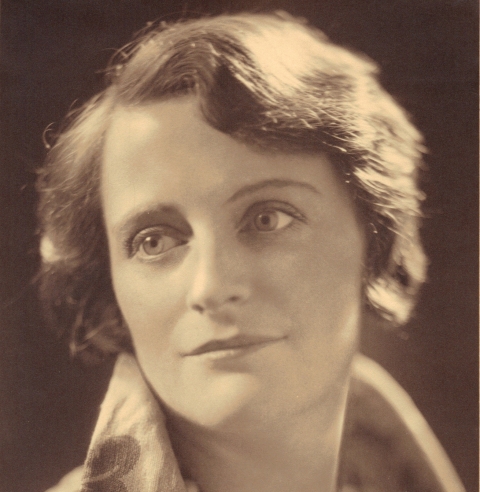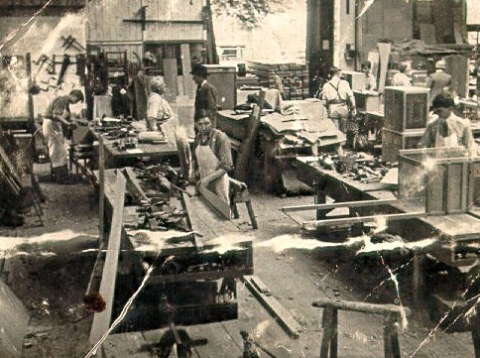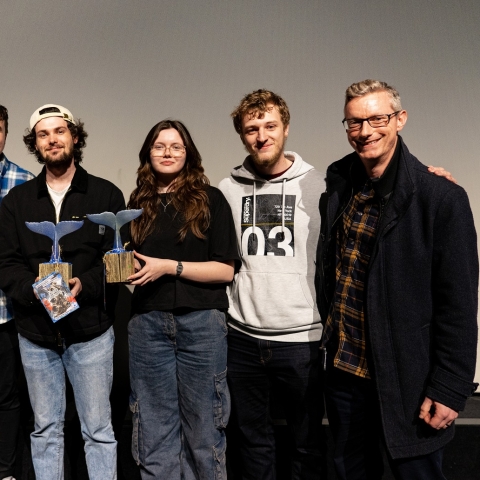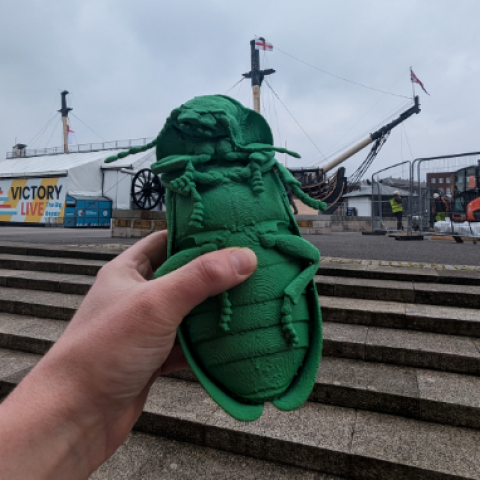

PhD student Tara McKinney Marinus is collaborating with Portsmouth Museum and Art Gallery to research the work of Betty Joel, who has been overlooked in design history
9 April 2024
3 minutes
A new project that aims to uncover the hidden story of the Portsmouth-based furniture designer Betty Joel is looking for local residents who may be able to help with the research.
University of Portsmouth PhD student Tara McKinney Marinus is collaborating with Portsmouth Museum and Art Gallery to research the work of Betty Joel (born Mary Stewart Lockhart) (1894-1985) who has been overlooked in design history to date. Betty started the furniture-making business, Betty Joel Ltd with her husband David Joel, a retired naval officer, in 1921 on Hayling Island with just one or two local craftsmen.
As demand for their products increased, they opened a showroom in Knightsbridge, London in 1924 and moved to larger workshop premises in Goldsmith Avenue, Portsmouth in 1929. By the mid-1930s Betty had collaborated with many highly regarded architects and designers on interior schemes and product design, most notably the architect Harry Stuart Goodhart-Rendel who designed a grand new modernist factory in Kingston-upon-Thames in 1934 for Betty Joel Ltd. The Portsmouth factory, known as Token Works, continued until 1935, and many of the local craftsmen employed had yacht-building experience resulting in distinctive high-quality furniture.
Betty Joel became a respected name in the design industry during the interwar period, and her furniture still commands the attention of collectors and antique dealers for its fine construction and innovative design reflecting the needs of the modern women. However, sadly her contribution has largely been overlooked, along with the stories of those who created her furniture with her.
The aim of this research is to bring Betty Joel back into the spotlight and recognise her significant contribution, and the city of Portsmouth, to British modern design history. I hope the public will be intrigued and come forward to help recover this piece of hidden Portsmouth history.
Tara McKinney Marinus , PhD student

Token Works factory, Goldsmith Avenue, Portsmouth, 1930. Reproduced by kind permission of Portsmouth Museum Service, Portsmouth City Council.
To contribute to the research, Tara is hoping to find people who may have examples of Betty Joel’s furniture, her pieces usually have a unique name plaque on them, and anyone who had family members or connections involved in the Joel’s business. Perhaps they have information about the factory, stories, drawings or photographs. She is also interested in hearing from family members who worked at the White & Newton furniture company established in 1924 to build a better understanding of Portsmouth’s furniture making industry. This company continued their distinctive mid-century designs into the 1960s.
Tara said: “The aim of this research is to bring Betty Joel back into the spotlight and recognise her significant contribution, and the city of Portsmouth, to British modern design history. I hope the public will be intrigued and come forward to help recover this piece of hidden Portsmouth history.”
Emily Worsdale, Curator of Art at Portsmouth Museums, added: “We are excited to be hosting an exhibition devoted to Betty Joel at Portsmouth Museum and Art Gallery in 2026. It will be a unique opportunity to present a fascinating insight into Betty’s life as a designer and celebrate the skills of those involved in the Joel’s furniture making in the city.”
If you can help, please contact Tara at: tara.mckinney-marinus@port.ac.uk
Other stories you may be interested in
Students’ talent recognised by local and national film competitions
5 April 2024
3 minutes

Deathwatch beetle brought to life by 3D printing
3 April 2024
3 minutes

National Campaign shows creative and economic value of English degrees
26 March 2024
3 minutes

